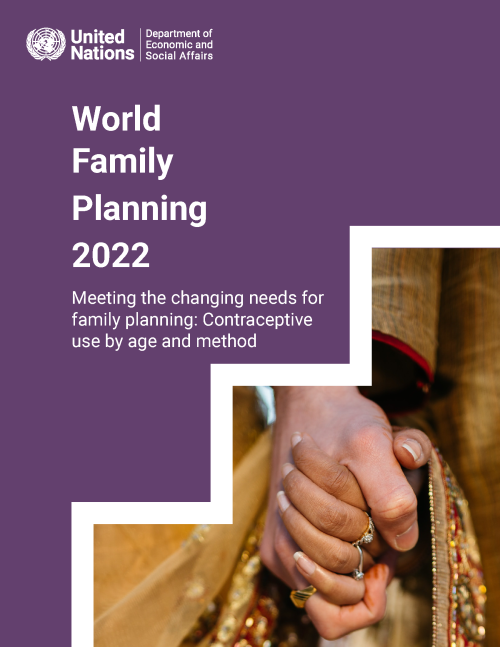
Contraception assists individuals and couples to achieve their reproductive goals and enables them to exercise the right to have children by choice. World Family Planning 2022 presents the latest trends and patterns in contraceptive use at the global, regional and national levels. The report assesses levels and trends in contraceptive use and needs of women of reproductive age between 1990 and 2021, including the proportion of women of reproductive age (aged 15-49 years) who have their need for family planning satisfied with modern methods of contraception (SDG indicator 3.7.1). The report also examines how contraceptive use and needs vary by women’s age and highlights gaps in meeting…
The United Nations E-Government Survey 2022 is the 12th edition of the United Nations’ assessment of the digital government landscape across all 193 Member States. The E-Government Survey is informed by over two decades of longitudinal research, with a ranking of countries based on the United Nations E-Government Development Index (EGDI), a combination of primary data (collected and owned by the United Nations Department of Economic and Social Affairs) and secondary data from other UN agencies.
This edition of the Survey includes data analysis in global and regional contexts, a study of local e-government development based on the United Nations Local Online Service Index (LOSI),…
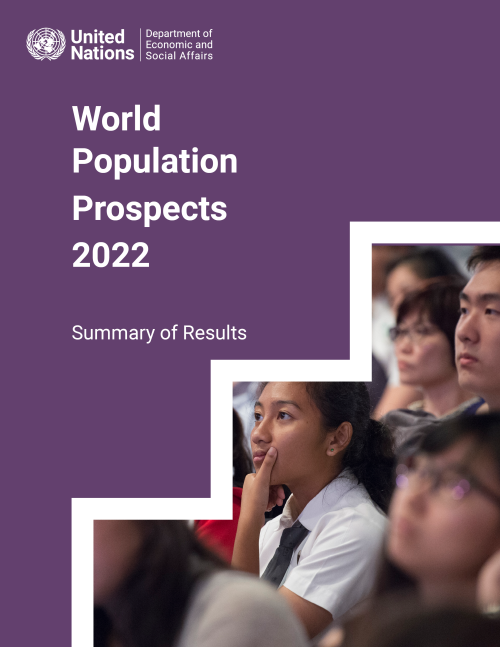
World Population Prospects 2022 is the twenty-seventh edition of the official United Nations population estimates and projections. It presents population estimates from 1950 to the present for 237 countries or areas, underpinned by analyses of historical demographic trends. This latest assessment considers the results of 1,758 national population censuses conducted between 1950 and 2022, as well as information from vital registration systems and from 2,890 nationally representative sample surveys.
The 2022 revision also presents population projections to the year 2100 that reflect a range of plausible outcomes at the global, regional and national levels. For the first time,…
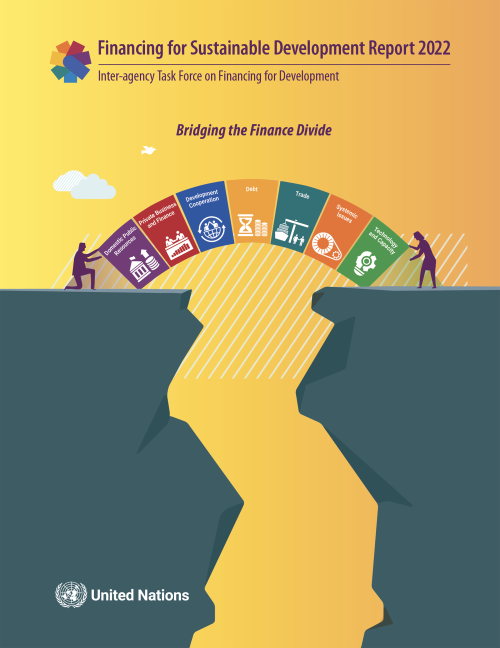
Developing countries still have to regain lost ground from the COVID-19 pandemic. The pandemic has put more countries at risk of debt distress, constrained their fiscal space and hampered economic growth. The war in Ukraine is exacerbating all these challenges. In this context, the 2022 Financing for Sustainable Development Report identifies a “great finance divide” – the inability of poorer countries to raise sufficient resources and borrow affordably for investment.
The great finance divide leaves developing countries unable to respond to crises and invest in sustainable development. On average, developed countries use 3.5 per cent of revenue to pay interest on their debt,…
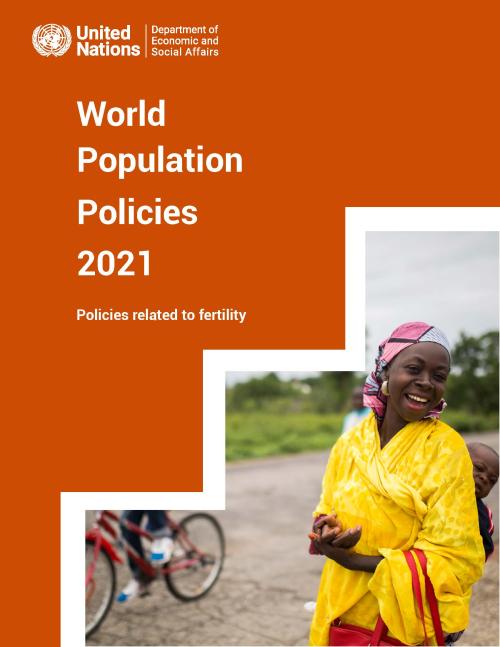
The World Population Policies 2021: Policies related to fertility, provides a brief overview of global fertility levels and trends since the early 1960s and explores government’s views and policies related to fertility. The analysis of views and policies draws on data gathered through 2019 and available in the World Population Policies Database, reflecting the situation before the outbreak of the coronavirus disease 2019 (COVID-19) pandemic. The report then presents five case studies of countries from different regions and with a range of fertility levels, exploring in more detail the origin and evolution of national fertility policies. The case studies are followed by an assessment of…
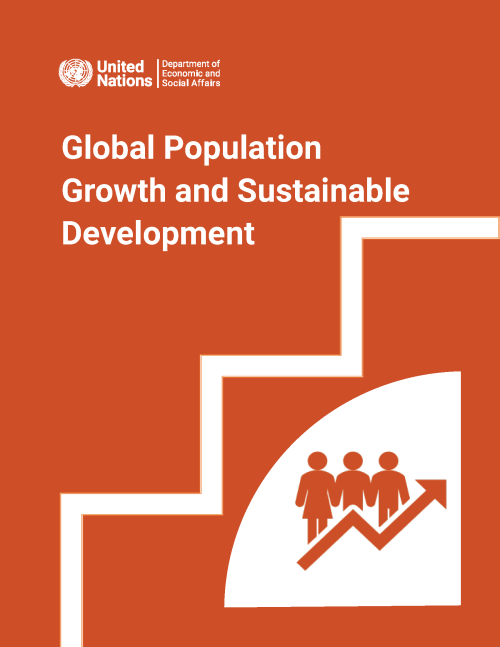
Global Population Growth and Sustainable Development probes the linkages between global population growth and the social, economic and environmental dimensions of sustainable development. The report examines how the current rapid growth of the human population is a consequence of the demographic transition from high to low levels of mortality and fertility. The report reviews the connections between population growth and key aspects of social and economic development, including poverty, hunger and malnutrition, health, education, gender equality, economic growth and decent work. It also explores the contribution of global population increase to environmental degradation, including…
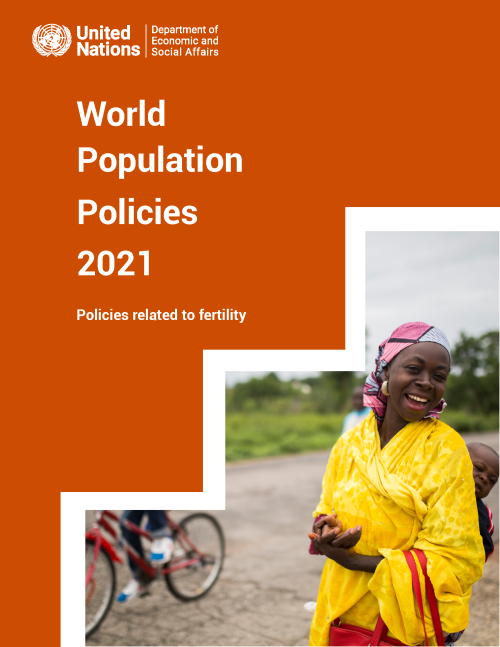
The World Population Policies 2021: Policies related to fertility, provides a brief overview of global fertility levels and trends since the early 1960s and explores government’s views and policies related to fertility. The analysis of views and policies draws on data gathered through 2019 and available in the World Population Policies Database, reflecting the situation before the outbreak of the coronavirus disease 2019 (COVID-19) pandemic. The report then presents five case studies of countries from different regions and with a range of fertility levels, exploring in more detail the origin and evolution of national fertility policies. The case studies are followed by an assessment of…
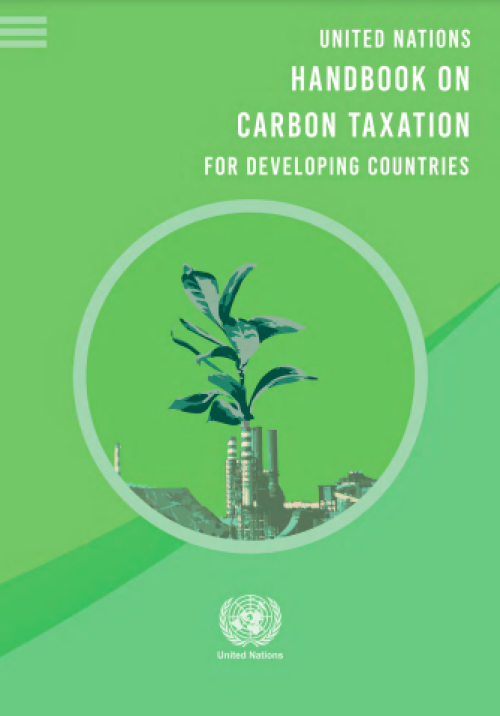
Environmental taxes are on the agenda of many developing countries, for both revenue purposes and for meeting countries’ commitments on climate change and sustainable development.
Carbon taxes are a policy option aimed at curbing carbon-based emissions responsible for climate change, in line with the commitments assumed by countries under the Paris Agreement. Carbon taxes put a price on the emission of greenhouse gases, thereby motivating companies to invest in cleaner technology or switch to more efficient practices. Likewise, consumers may be incentivized to invest in energy efficiency, change their lifestyle habits or, where options are available, switch to cleaner forms…
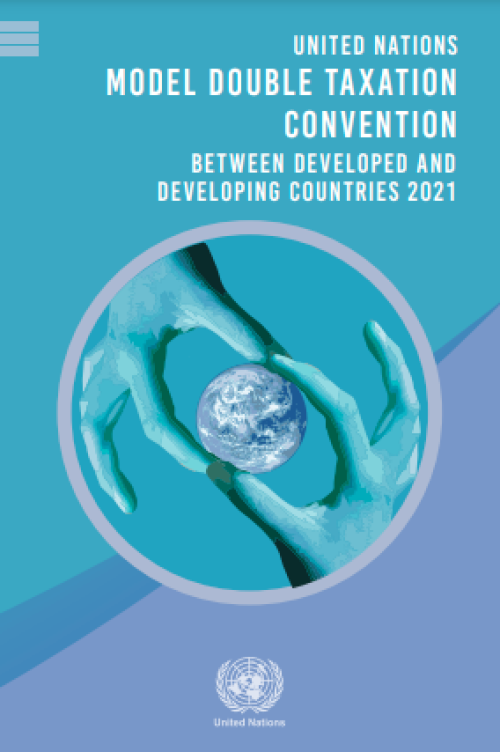
Double tax treaties aim to prevent unrelieved double taxation, in order to foster cross-border economic activity and the transfer of technology. Countries generally use models as a starting point when negotiating tax treaties. As the UN Model Double Taxation Convention between Developed and Developing Countries generally favours retention of greater host country taxing rights, it tends to be relied upon more by developing countries than the OECD Model Tax Convention on Income and on Capital.
The UN Model Taxation Convention consists of articles on the treaty’s scope and on definitions to be used in the treaty. For different kinds of income and capital, it allocates taxing rights…
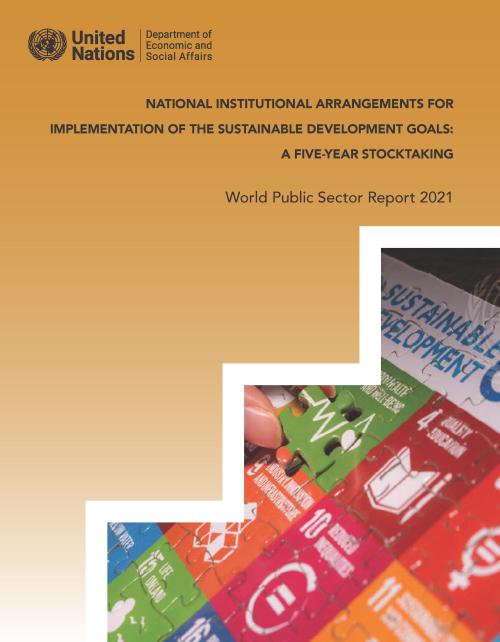
Institutions are paramount to the achievement of the 2030 Agenda for Sustainable Development and all the Sustainable Development Goals (SDGs). Five years after the start of the implementation of the Agenda, governance issues remain at the forefront. The COVID-19 pandemic has highlighted even more the importance of national institutions for the achievement of the SDGs. The World Public Sector Report 2021 focuses on three dimensions of institutional change at the national level. First, it documents changes in institutional arrangements for SDG implementation since 2015. Second, it assesses the development, performance, strengths and weaknesses of follow-up and review systems for the SDGs.…
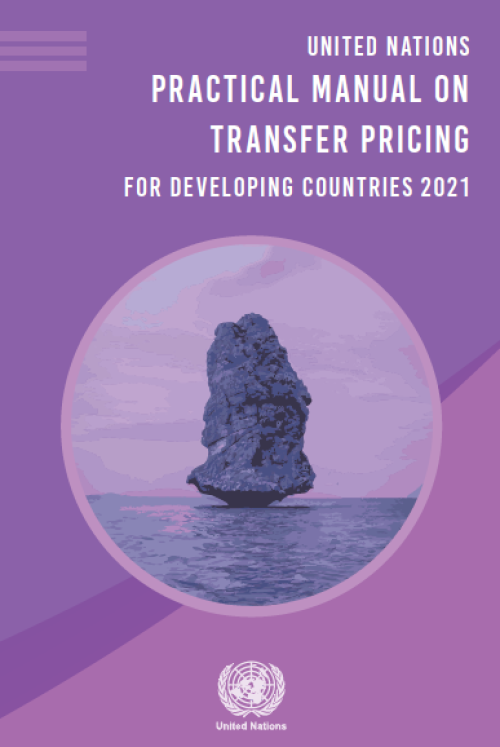
Transfer pricing is the general term for the pricing of transactions between related or associated enterprises. It should reflect the internationally accepted arm’s length principle embodied in Article 9 of the UN Model Double Taxation Convention between Developed and Developing Countries. It is particularly relevant to the global transactions of multinational enterprises, involving the transfer of goods, services and intangibles between enterprises of the multinational groups.
When transactions between associated enterprises do not reflect the arm’s length principle, profits might be shifted to low-tax or no-tax jurisdictions and losses and deductions shifted to high-tax…
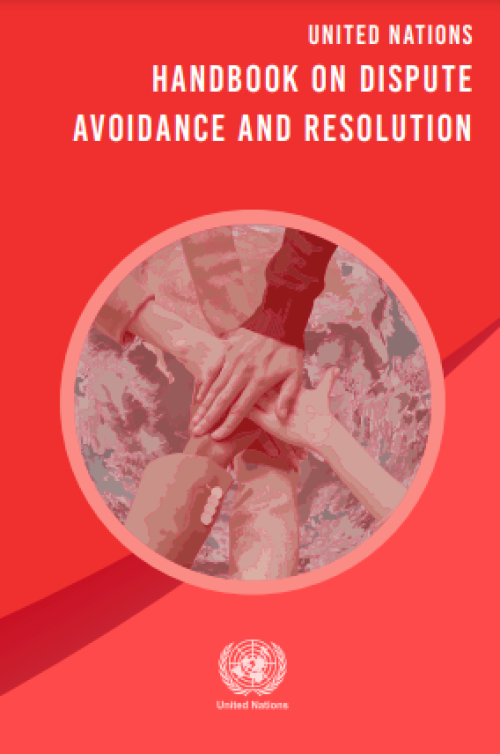
A main preoccupation of those responsible for designing tax systems is minimizing disputes concerning the interpretation and application of income tax laws and ensuring that any disputes are resolved fairly and effectively.
Particularly for tax administrations of developing countries, fair and effective resolution of tax disputes serves to balance the dual country needs to raise domestic revenues and to attract and keep foreign investment. Achieving the right balance contributes to the strengthening of domestic resource mobilization.
The new UN Handbook on Avoidance and Resolution of Tax Disputes provides guidance on the various mechanisms to avoid and, if…
 Welcome to the United Nations
Welcome to the United Nations